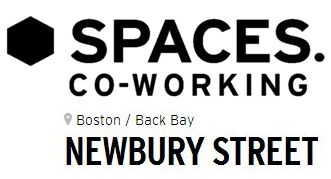Baker increases capacity limit on restaurants, gyms, and other businesses to 40 percent starting Monday
Just in time for Valentine’s Day, the Baker administration is increasing the temporary capacity limits for a variety of businesses such as restaurants, stores, and gyms.
The state Department of Public Health informed cities and towns on Thursday that the 25 percent capacity restrictions,
put in place after Christmas, would be increased to 40 percent on Monday because of recent improvements in COVID-19 data. The change also applies to office capacity, though few offices will fill to that level anytime soon with so many people still working out of their homes.
“We know that these restrictions have been and continue to be enormously difficult for large and small businesses, their employees, and for individuals everywhere,” Governor Charlie Baker said. “But we’re making progress in this battle against COVID and everyone’s hard work and preparation is now making it possible for us to continue to step back to what we might call a new normal.”
Get Business Headlines in your inbox
The Globe’s latest business headlines delivered every morning, Monday through Friday.
Enter Email
Sign Up
Separately, Baker announced another round of small-business relief grants, issued through the quasi-public Massachusetts Growth Capital Corp. More than 4,000 businesses received grants, ranging from $10,000 to $75,000, in the latest round, collectively totaling about $174 million. The administration has now doled out more than $450 million to help about 9,900 businesses weather sales downturns caused by the pandemic and related restrictions.
Advertisement
The Department of Public Health on Thursday
reported 2,602 new confirmed COVID-19 cases and 74 new deaths. The state’s second surge appears to be subsiding, with cases, hospitalizations, deaths, test positivity, and other metrics trending downward.
ADVERTISING
Related
Baker said the state has seen a “50 percent reduction in our seven-day average case count since its peak in early January, and a 35 percent reduction in COVID hospitalizations.”
His decision to loosen capacity restrictions could provide a psychological boost that encourages people to leave their homes and patronize local businesses more frequently. Whether that’s a good thing or a bad thing depends on who you ask.
Advertisement
Jon Hurst, president of the Retailers Association of Massachusetts, said his group has been lobbying the Baker administration to lift the caps, particularly with Valentine’s Day in mind.
“The details in these occupancy limitation orders frankly matter less than the messaging it indicates, that things are getting better, people are getting the [vaccination] shots,” Hurst said. “It’s more the overall messaging to consumers that things are getting better.”
That’s exactly what concerns Marc Draisen, executive director of the Metropolitan Area Planning Council. Draisen said he was stunned by the decision, saying it’s too soon to ease up on restrictions given how many people are still dying.
“Every time you loosen restrictions, you send a message to the public that it’s OK to be less careful,” Draisen said. “People are understandably fatigued. They’re tired. They’re homebound. They see the vaccine is coming. They interpret these changes that it’s OK to spend more time mingling with people outside of your home, and it isn’t.”
Several public health experts also expressed concern about moving too quickly with easing restrictions — particularly with new, potentially more contagious variants of the virus emerging.
“I’m worried about a post-Super Bowl surge in cases,” said David Hamer, a professor of global health and medicine at Boston University, noting case increases that happened after Thanksgiving and the winter holidays. Public health officials have been
asking people not to gather for watch parties for Sunday’s game.
Advertisement
“Personally, I would favor waiting a few more weeks,” Hamer said.
Shan Soe-Lin, managing director of Pharos Global Health Advisors in Boston, said it’s still a bad time to raise capacity limits on “higher-risk” businesses.
“We would be wise to keep hunkering down for a few more weeks and put all of our efforts into getting as many vaccines into arms as possible before loosening restrictions,” she said in an e-mail. “We are still in a race for our lives with the virus, and COVID is still winning.”
For many businesses, raising the cap at this point will have little material effect. That’s because business has slowed so significantly compared to prepandemic levels that they have not been in danger of hitting the 25 percent cap for occupancy, let alone a 40 percent limit.
Count Julio Guerrero, the owner of the barbershop Temple of Groom in Cambridge and Boston, among them. He said the relaxed restrictions likely will not make a difference for his business, which has been struggling since it reopened in the spring. Because many employees are still working from home, Guerrero said, the barbershops don’t see clients who used to come in during their lunch break or after their shift.
Jess Fracalossi, the founder of indoor cycling studio The Handle Bar, pointed out that there are still protocols that gyms and fitness centers must follow that limit how many people can exercise together. For example, people must remain 14 feet apart during group fitness classes if a barrier is not in place. She said Handle Bar’s brick and mortar spaces remain closed, and the business hosts classes at larger off-site locations instead.
Advertisement
“As long as these requirements are in place, we will still be unable to operate profitably,” she said. “We are in basically the same place we were in mid-July.”
But Planet Fitness franchisee Jaryd Belanger is looking forward to welcoming more people. Belanger said some of the 27 clubs he owns and operates have been reaching the 25 percent capacity limit. Increasing capacity while maintaining social distancing protocols could be easier for larger facilities like Planet Fitness, whose gyms in Massachusetts average about 20,000 square feet, he said.
One chef-owner said the loosened restrictions show the state is prioritizing the needs of struggling businesses, owners, and employees, who have been lobbying to raise capacity limits for some time.
“It’s a newfound mutual respect and trust in restaurants’ situation, in our steps to protect ourselves and our diners,” said Douglass Williams of MIDA in Boston. “That’s what it feels like we are getting from the local and state government, and from the public. Restaurants have been following the rules since we reopened last summer.”
The businesses and facilities that will go from 25 percent capacity to 40 percent at 5 a.m. on Monday include: restaurants, driving and flight schools, fitness centers, libraries, museums, offices, and stores. The capacity limit will also rise for places of worship, as well as hair salons and other businesses defined by the state as “close contact personal services.”
Advertisement
Movie theaters will go to 40 percent as well, but will be capped at 50 people per theater. For restaurants, the 90-minute time limit for dining will remain in place, as will the maximum party size of six people.
Meanwhile, the state’s gathering limit will remain untouched: 10 people indoors, and 25 outside. Likewise, the statewide limit keeping indoor performance venues closed along with certain indoor recreation businesses such as roller rinks and trampoline parks remains in place.
Travis Andersen, Priyanka Dayal McCluskey, and Martin Finucane of the Globe staff and Globe correspondent Diti Kohli contributed to this report.






